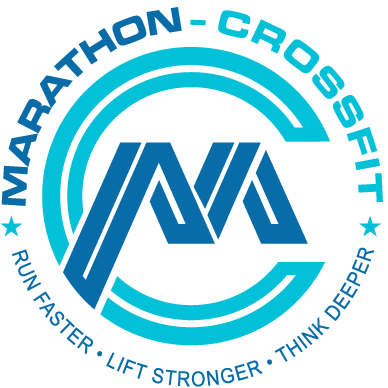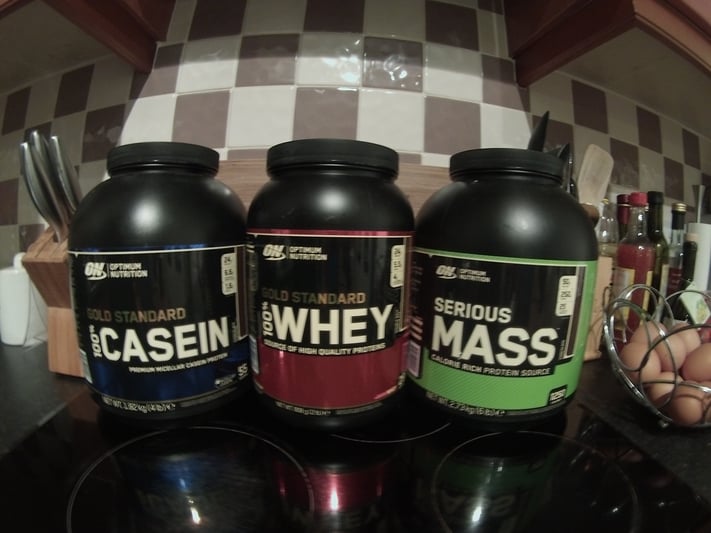Do you need protein to get stronger ?
The answer to this question is YES, you need protein to get stronger. However the answer to the question "Does protein make me stronger ?" is NO. You have to see protein as part of your overall lifestyle, goals and diet to understand it's function and if, how much and in which form you will take protein based on the whole picture. When you look at supplements always remember that someone is selling you a product and therefore that particular industry has an interest to make you believe that you need it. I personally have two shakes a day, one in the morning, one in the evening, as part of a balanced diet while doing two intense workouts a day to give you some perspective. Always consult a doctor for your specific diet needs.
What is your goal ?
When it comes to fitness generally you have to distinguish between the goals of women and men. The most commonly goals of men who are into the gym are in my opinion:
- Get strong
- Build muscle
- Get ripped
In various variations of the three. For one and two you will need protein, but not necessarily extra protein via supplements, which we will come to later. It is very likely that for building extra mass in the sense of bodybuilding you will need more protein than for getting stronger, as strength gains can also be achieved without muscle growth by improving movement patterns or neural functionality.
The last goal of getting ripped can be achieved in the easiest manner even without consuming protein. In fact the easiest way to a six pack, apart from buying one in form of cans at the local shop, is to starve yourself until you are down to 5% bodyfat. Anyone can get there by doing this. The problem with this approach is, that it is extremely unhealthy. Even bodybuilders only maintain these levels of low body fat only for a limited time for competition. This is not for you and me. I personally very much dislike the huge emphasis that is being put on six packs in the media, because it creates a wrong image of how people should look like all year around.
When it comes to the female population it seems like the main goals are:
- Dropping a dress size for their wedding / next vacation
- Lose surplus fat on belly after pregnancies
- Lose weight for health purposes
The trend of "Gym chicks" seems to be picking up recently and the image of the strong woman who can lift, because of the crossfit craze which is making its way from California through the US to a global phenomenon. Still I personally think the topics of getting stronger, building muscle and getting ripped are not as predominant among women who go to the gym. I did not do a study on this, but if you got inspired for your PHD based on my lack of proof send me the paper hwne it is done and have a pint on me. You are welcome ;).
For these three goals protein supplements are of minor to no importance in my book. This is about diet and exercise regimes which have been interrupted because of some external factor (pregnancy) or never have been established (bad eating and exercising habits due to upbringing).
Protein is however a key component in a good diet which helps you achieve these goals, but is off topic in regards to the initially posed question of "Do you need protein to get stronger". Therefore the rest of the article is mainly assuming that you are a male trying to achieve before stated goals. Sorry ladies! (Except you are a crossfit or gym chick, please read on)
What are your activity levels ?
The basic principle of dieting can be applied here which is:

The higher your activity levels are the more likely it will become that you will struggle to take in enough protein to balance out the protein which is being used up through your exercises. As in most parts of western society the intake of protein is already too high compared to the level of physical activity. You most likely will have to worry about that part first, before even thinking about supplements. As long as you are not exercising intensively each day I think supplements are not a necessity and you should look at natural options to cover your protein intake.
The easiest way to start the journey of getting stronger is to do activities which make you stronger. Start lifting weights, climbing rocks, carrying the groceries for your granny/mother, whatever it may take. Establish this routine first as the changes in diet are harder and I found that focusing on getting active first is more rewarding than cutting out things you like in your diet.
Be active three times a week at least, maybe even more. Most lifting programs work with 3 - 4 days of work a week to allow for enough recovery for the muscles to grow and regain strength. I personally do cardio on the "between" days or in the mornings.
What does your diet look like ?
Before putting more protein into yourself in form of processed powder, which I do and helps, think about your diet and cut out the obvious detractions from your goals. Prime suspects are:
- Juices (Sugar)
- Alcohol
- Chocolate
- Fast Food
If you cut out these you are already a big step closer to getting stronger and more agile just by sheer adaptation of your intake. If you want to become a bodybuilder, you have to eat and train like one. I think most people do not aim for this.
Make these simple adjustments without mixing in supplements for the start and you will see results. The money you save on alcohol and fast food should finance a membership in your local gym. Once you hit activity levels that can not be met with normal food (which for 90% of the population is not the case) start to supplement.
If you wanted to be organic, check out Frank Medrano, he is a super strong vegan.
How much protein should I consume ?
Guidelines vary from study to study and which expert you ask. From what I have gathered you should consume 0.8 grams to 1 gram per kilogram as an average joe. If you are an athlete it is more, trending towards 1.2 - 1.7 grams per kilogram of body weight. Whatever source you may consult they'll most likely give you a number in this ball park game.
Once you have calculated your daily intake depending on activity levels and goals the next question becomes how to distribute protein intake between meals of the day. There is a myth out there, that your body can not digest more than a certain amount of protein in one sitting. Layne Norton makes a well informed point about this in the following video:
What is to keep in mind is that the more protein you consume in one meal the longer it will take to digest, while it still all will be digested by your body. As with everything you eat you can reach a point of over saturation which most likely will lead to the protein not being taken in and feeling bloated, maybe even getting the runs. Still the food will be digested.
As Layne Norton mentions in this video there is optimum intake and this seems to be somewhere around 20 - 30 grams of protein per meal. Most protein supplements seem to be designed around that intake per serving. Exceptions are mass gainer labeled products which usually go beyond this.
The most commonly distributed forms of supplement proteins are whey and casein products (walk in to your next supplement store & count the cans for proof, if you want to challenge this). What is to keep in mind here, is that whey protein is being digested quicker than casein protein. So whey is best suited to be taken directly after a session and casein before going to bed to be digested over night. You will also find "complete protein" products which are basically a mixture of different proteins in one product to cover all of the angles.
Decide on which form of protein you'll buy based on what you are already naturally taking in through your food. Supplement what is not covered by your meals. You can cover your protein by consuming
- chicken breast
- ground turkey
- whole chicken
- fish
- canned fish
- milk
- cottage cheese
- plain low fat yogurt
- quark cheese
- whey
- Whole eggs
- scrambled eggs
- Walnuts
- almonds
- cashew
- pistachio
If you are a vegan you might need some other sources. Frank Medrano is a vegan who is very strong and has advise on his website for a vegan diet which supports strength gains.
Risks of protein intake
There is a debate out there whether or not too much intake of protein is bad for your kidneys. Same goes for creatine. The sources I consulted are mainly bodybuilders and weightlifters therefore their opinions are biased towards protein not being a risk.
I am personally undecided on this, but if there are health problems with people who are into fitness and focus on strength or muscle gains they usually occurred from intake of testosteron or nitric oxide in some kind of way and not from protein. Still always check the labels of and if your product is regulated by the FDA to ensure you are not buying crap. This video might help you to decide:
Conclusion
Protein supplements are one piece of the puzzle, but not the most important one. Before even considering to supplement get other areas sorted like establishing a regular exercising schedule, lose those extra pounds around your waist, cut out the Guinness, Budweiser etc. Once you have these things down and feel like you are not progressing anymore towards your goals, start to supplement. Whey shakes won't magically make you ripped, muscly or strong. This will take hours in the gym, a plan and dedication.
Further reading
- 30 Tips on how to get stronger for lifting
- 3 easy ways for marathoners to get stronger and
more agile - 5 secrets from Pavel Tsatsoulin and Jim Wendler to make you stronger
- 5 steps to run faster, get stronger and be smarter
- 5 Strongmen you should know
- 5 tips to get stronger faster
- 7 websites to stay fit and strong
- Better breathing makes your squat stronger
- How the get up will make you strong
- How to get 10% stronger in six weeks
- How to kettlebell swing to get amazingly strong
- How your body gets stronger for CrossFit and powerlifting
- Selected quotes from Deadlift Dynamite that will make you stronger
- Selected quotes from simple and sinister that will make you stronger
- Sore today, strong tomorrow with a squat workout
- Try this deadlift thing to get strong like bull


